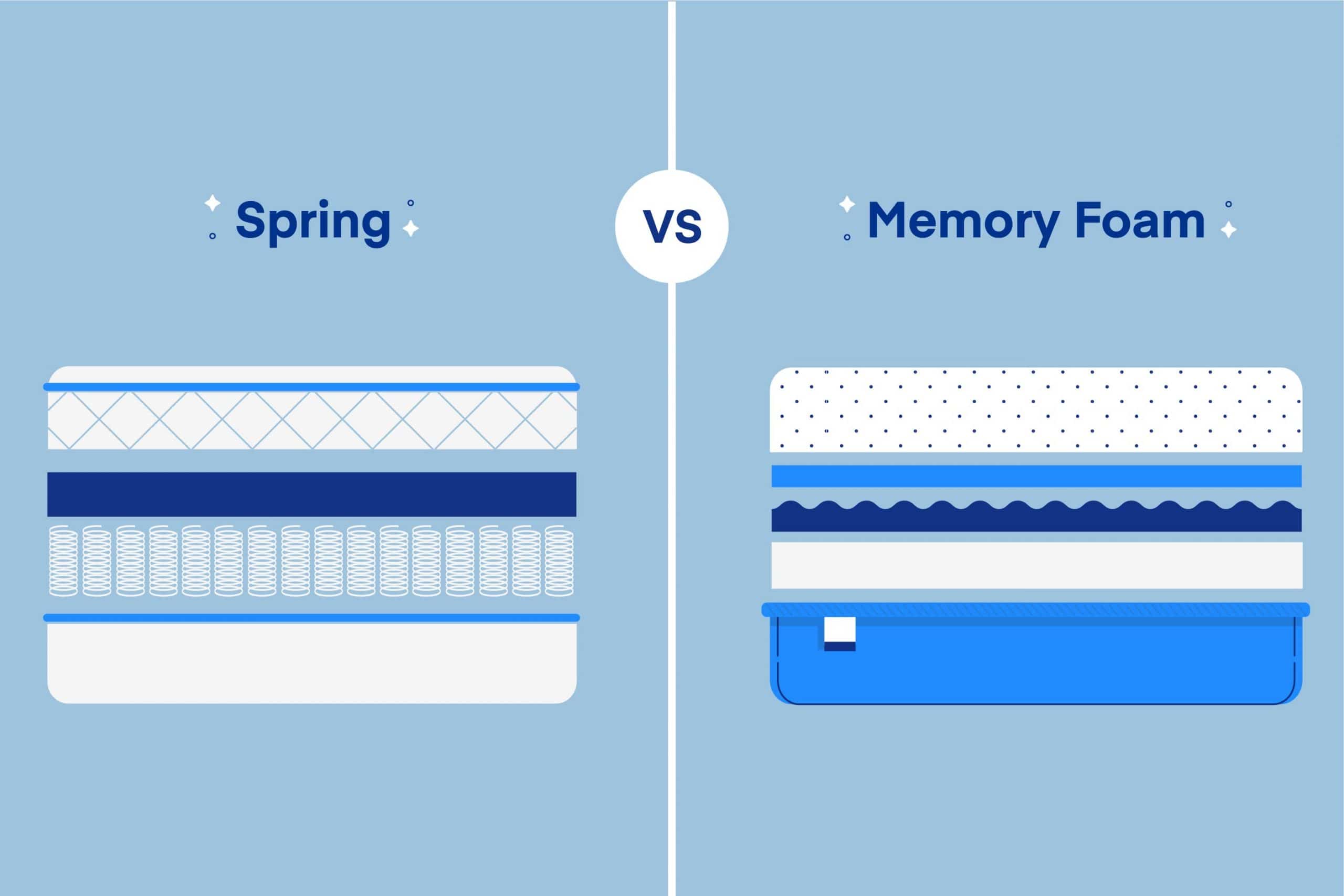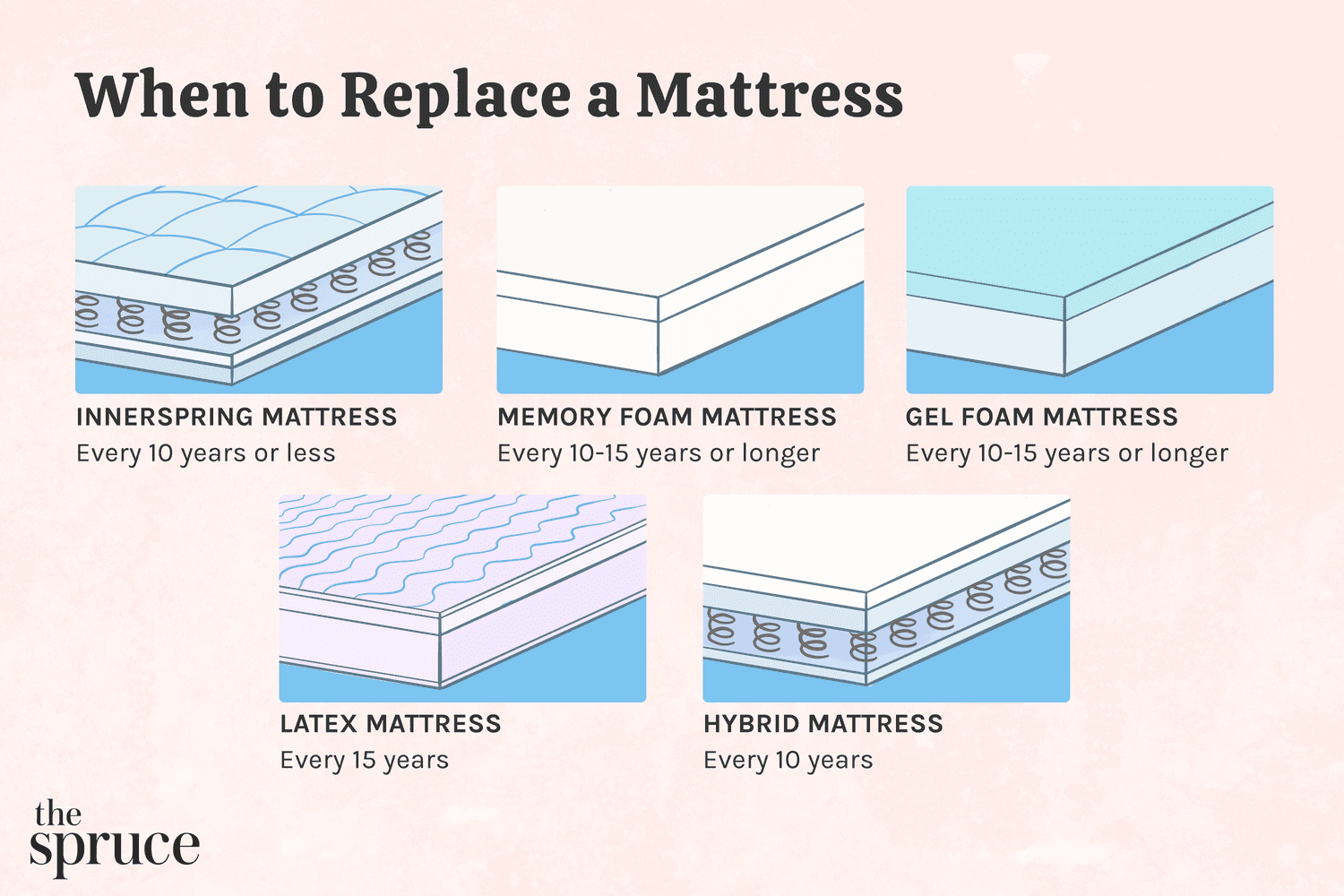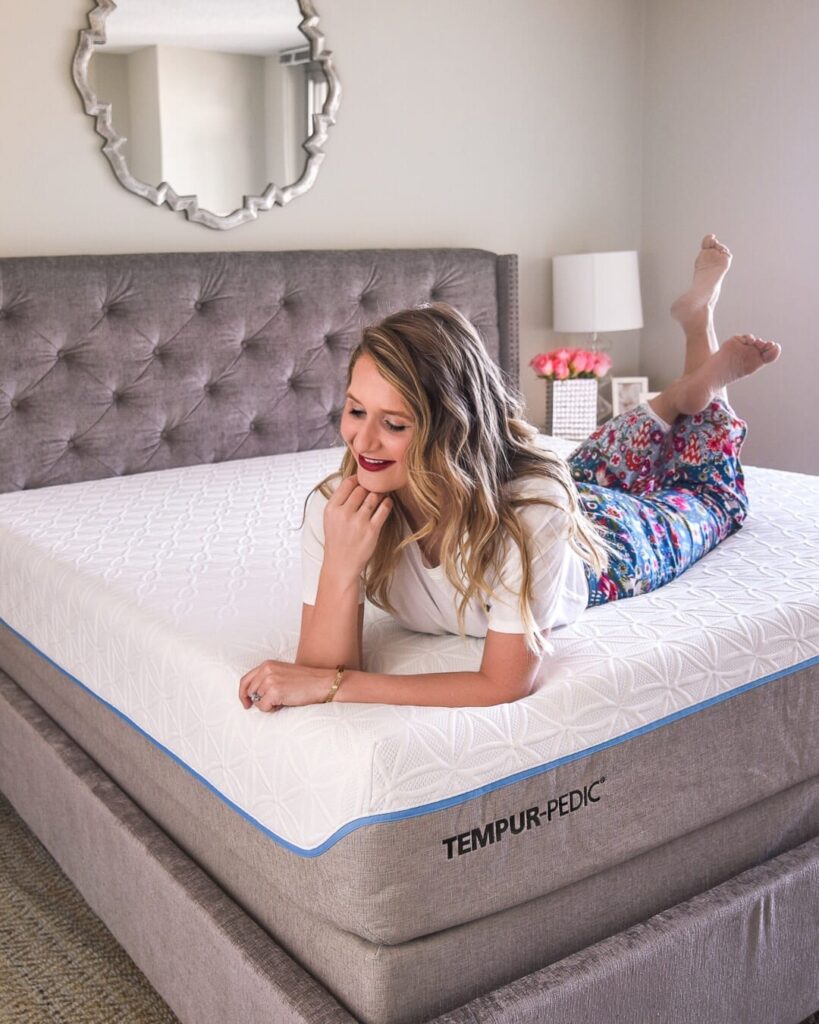When it comes to comfort and durability for your bed, memory foam mattresses are often the go-to choice. But how long do memory foam mattresses last? In this comprehensive guide, we will explore the lifespan of memory foam mattresses and provide helpful tips on how to extend their life. We will also discuss what to look for when buying a memory foam mattress, so you can make sure you’re making the best investment.
What is Memory Foam?

Memory foam is a type of viscoelastic foam composed of polyurethane and other chemicals that responds to pressure and temperature. It is also known as viscoelastic polyurethane foam, or simply visco foam. It is usually softer than traditional foam mattresses and has a slow response rate to pressure, meaning it takes time to adjust to your body’s shape. Memory foam mattresses are usually denser than other types of mattresses and provide good support.
Memory foam is a popular type of mattress because of its ability to provide comfort and support. It’s also known for its ability to contour to a person’s body shape, encouraging proper spinal alignment. This makes it great for pressure relief, which can help reduce aches and pains. Memory foam mattresses are also known for their durability, making them a great choice for those looking for a mattress that will last for years.
Because of their popularity, memory foam mattresses come in a variety of sizes, thicknesses, and levels of firmness. This makes it easy to find a mattress that will provide the support and comfort needed for a good night’s sleep. However, memory foam mattresses do need to be replaced after a certain amount of time. Knowing how long a memory foam mattress is good for can help you make sure you are getting the most out of your mattress and ensure you’re sleeping comfortably for years to come.
| Type of Mattress | How Long is a Memory Foam Mattress Good For? |
|---|---|
| Memory Foam | 5-7 Years |
The Lifespan of Memory Foam Mattresses

Quality
The quality of a memory foam mattress plays a major role in determining its lifespan. High-quality memory foam mattresses are designed to last for up to 10 years, while lower-quality mattresses may need to be replaced sooner. It’s important to invest in a mattress made from durable, quality materials to ensure it lasts as long as possible.
Care and Maintenance
In addition to investing in a quality mattress, it’s important to practice proper care and maintenance in order to extend its life. To keep your memory foam mattress clean and in good condition, make sure to use a mattress protector, rotate it often, and vacuum it regularly.
Use and Abuse
How long should you keep a memory foam mattress? If it’s used and abused, it won’t last as long as one used with care. Memory foam mattresses that are subjected to frequent jumping and rough play may need to be replaced sooner than those used with care. It’s important to use your mattress for its intended purpose and to avoid any activities that could damage it.
In general, a high-quality memory foam mattress should provide years of comfort and support. With proper care and maintenance, you can extend its lifespan and get the most out of your investment.
Factors Affecting the Lifespan of Memory Foam Mattresses
Quality of Foam
The quality of the foam used in the mattress is the most important factor affecting how long it will last. Higher quality foams last longer and are more resistant to body impressions and sagging than lower quality foams.
Mattress Cover
The mattress cover also plays a role in how long a memory foam mattress will last. A quality mattress cover will protect the mattress from spills, dirt and dust, and help keep it looking newer for longer.
User Weight
The weight of the person using the mattress can also affect its lifespan. Heavier people will cause the mattress to sag and impressions to form more quickly than lighter people.
Temperature
Memory foam mattresses are sensitive to temperature changes. Too much heat can cause the foam to break down faster, so it is important to keep the mattress in a cool, dry place.
Firmness
The firmness of the mattress can also affect its lifespan. Softer mattresses tend to break down more quickly than firmer mattresses.
Frequently Asked Questions
What factors influence the lifespan of a memory foam mattress?
Quality of Materials – The quality of materials used in the construction of your memory foam mattress will have a direct impact on its lifespan. High quality materials are better able to withstand wear and tear over time and will retain their shape and support for longer.
Maintenance – Proper maintenance of your memory foam mattress is essential if you want it to last longer. Regular vacuuming and spot cleaning of your mattress will help to keep it free of dust, dirt, and allergens that can break down the material over time.
Frequency of Use – The more frequently your memory foam mattress is used, the faster it will deteriorate. If you’re a light sleeper, you may find that your mattress lasts longer than if you were a heavier sleeper.
Environment – The environment in which your memory foam mattress is stored can also have an effect on its lifespan. Ensure that your mattress is kept in a cool, dry place to avoid mold and mildew growth.
Warranty – The quality of the warranty provided with your mattress will give you an idea of the expected lifespan of the product. Memory foam mattresses with longer warranties are usually of a higher quality and are expected to last longer.
What are some of the signs that a memory foam mattress needs to be replaced?
1. Sagging and indentations: If your mattress has deep sagging and indentations, it is time to replace it. Memory foam mattresses that are sagging in the middle or have deep depressions are no longer able to provide the proper spinal alignment or support for a good night’s sleep.
2. Lumps or bumps: If your mattress has lumpy or bumpy spots, it is time to replace it. This could mean that the foam layers have shifted or broken down and are no longer able to provide the same level of support and comfort.
3. Unusual odors: If you notice a musty or chemical-like smell coming from your mattress, it may be time to replace it. This could indicate that the foam has broken down over time and is no longer able to provide the same level of support and comfort.
4. Loss of comfort: If your mattress is no longer as comfortable as it once was, it may be time to replace it. Memory foam mattresses can start to lose their shape and support over time, which can make them less comfortable and more difficult to sleep on.
5. Age: The average lifespan of a memory foam mattress is 8-10 years. If your mattress is older than this, it is probably time to replace it.
Are Memory Foam Mattresses a Good Investment?
Memory foam mattresses are considered to be a great investment due to their durability and comfort. They provide excellent support for your body and help reduce joint pain and pressure points. Memory foam mattresses also tend to last longer than traditional spring mattresses, making them a cost-effective option over the long run. Additionally, memory foam mattresses are easy to clean and maintain, making them a great choice for those who want a low-maintenance mattress.
What is the Best Way to Care for a Memory Foam Mattress?
To maximize the longevity of a memory foam mattress, it is important to keep it clean, dry, and free of dust and allergens. Use a mattress protector designed for memory foam mattresses to keep it clean and free from stains. Vacuum the mattress once a month and spot clean any spills or stains immediately. Do not use harsh detergents or solvents when cleaning. Allow the mattress to air out in a well-ventilated room for at least a few hours every month. If possible, rotate the mattress every few months.
Are Memory Foam Mattresses Better Than Traditional Mattresses?
Memory foam mattresses offer superior pressure relief, motion isolation and contouring support compared to traditional mattresses. They are also more durable, with many models lasting up to 10 years. Memory foam mattresses also provide a cooler sleep surface because they absorb and dissipate body heat. Additionally, they are hypoallergenic, dust mite resistant and require less maintenance than traditional mattresses.
Conclusion
Memory foam mattresses provide many benefits and can last for up to 10 years with proper care and maintenance. As with any mattress, factors such as the quality of the mattress, the frequency of use, and the owner’s weight and body size all play a role in the lifespan of the mattress. Heavy people and couples may need to replace their mattress sooner than lighter people or solo sleepers. To maximize the lifespan of your memory foam mattress, rotate it every three months and use a mattress protector.






